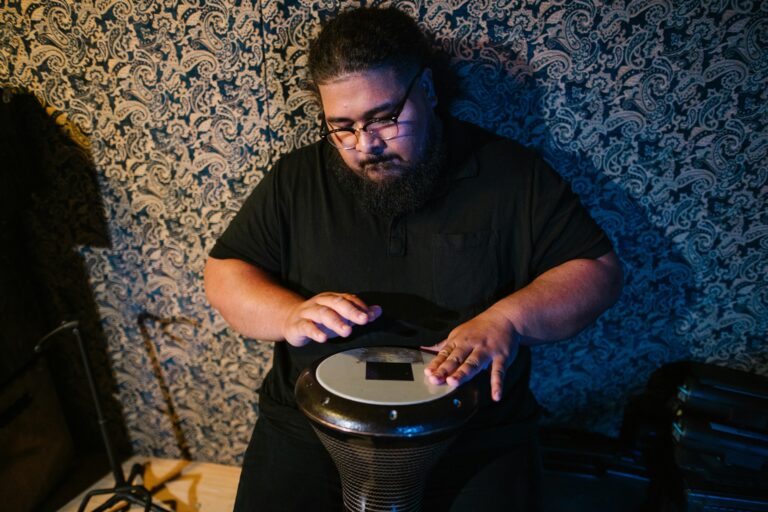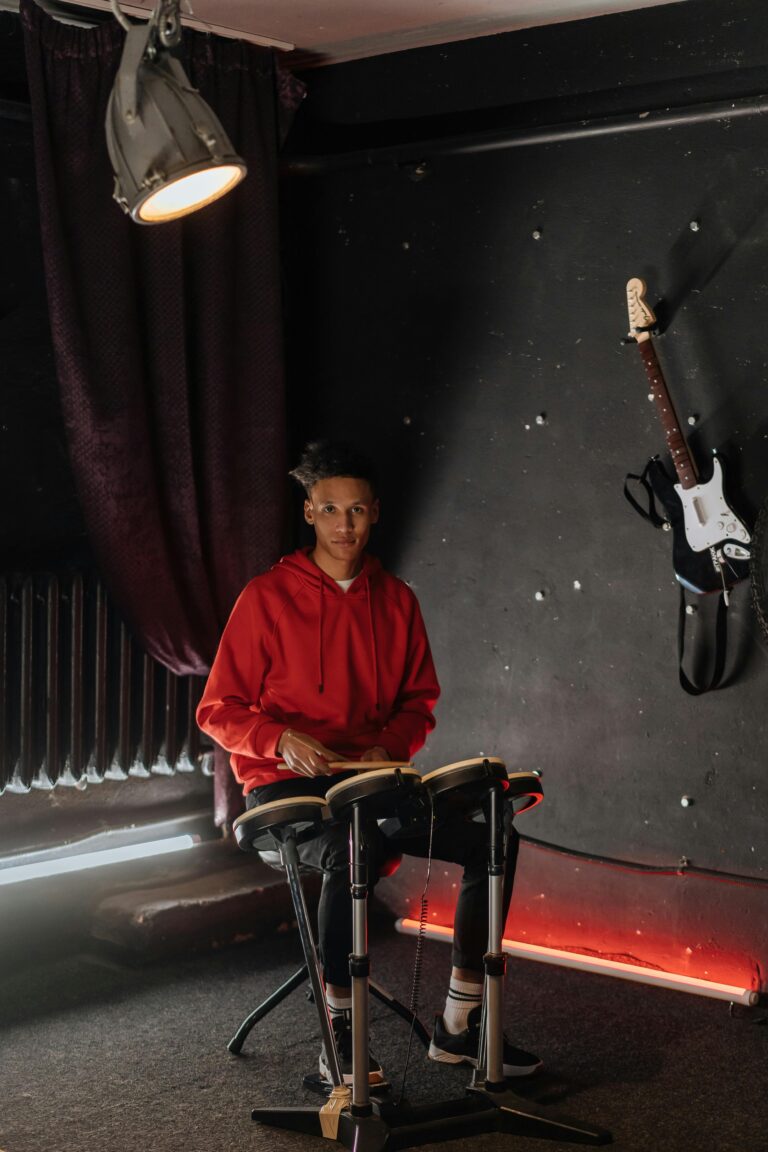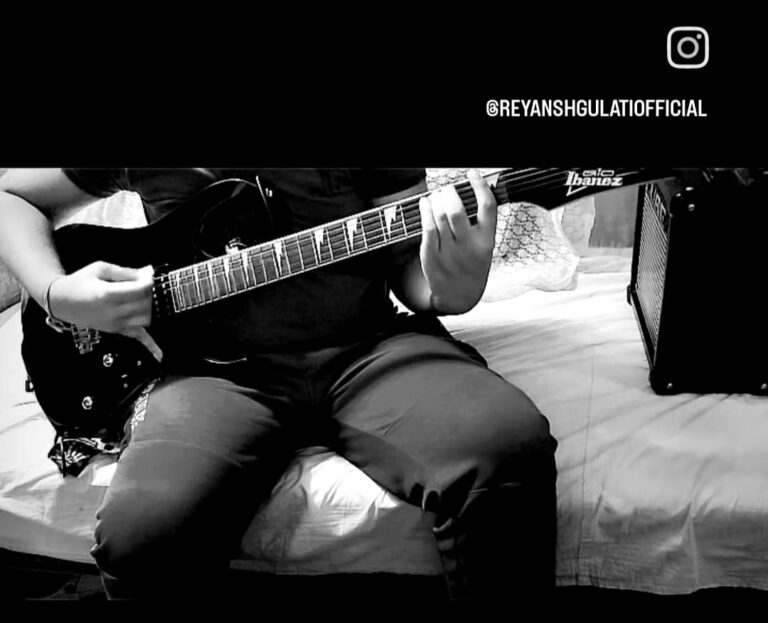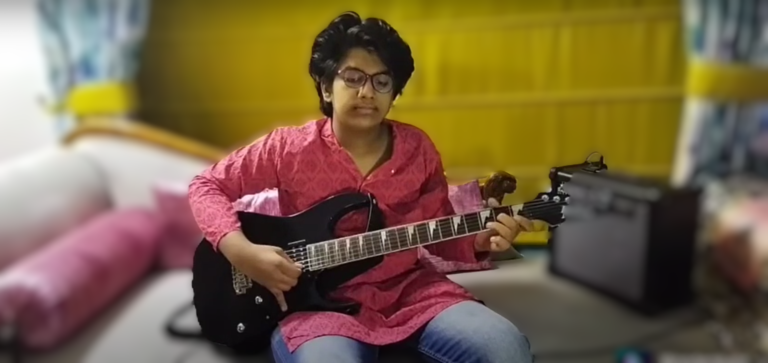🎹 Understanding the Different Types of Pianos and Keyboards
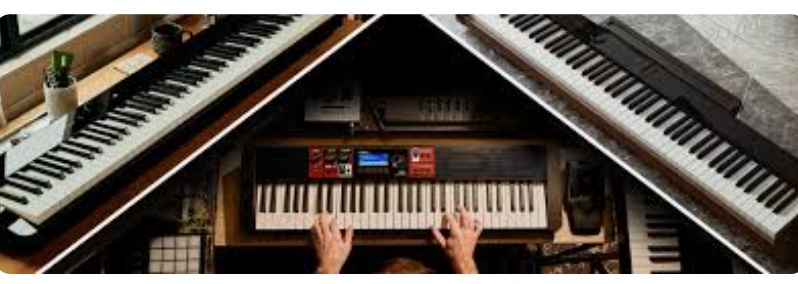
Whether you’re a budding musician, a seasoned performer, or just someone curious about musical instruments, understanding the different types of pianos and keyboards is essential. With so many options out there, choosing the right one can feel overwhelming. Let’s break it down and explore the fascinating world of pianos and keyboards.
🎼 The Timeless Charm of Acoustic Pianos
1. Grand Piano
The grand piano is the king of all pianos. With its long, horizontal frame and responsive touch, it offers unparalleled sound quality and dynamic control. You’ll find concert grands on symphony stages and baby grands in elegant living rooms.
Best For: Professional pianists, concert halls
Pros:
1) Rich
2) Full tone
3) Excellent key response
Cons:
1) Expensive
2) Large
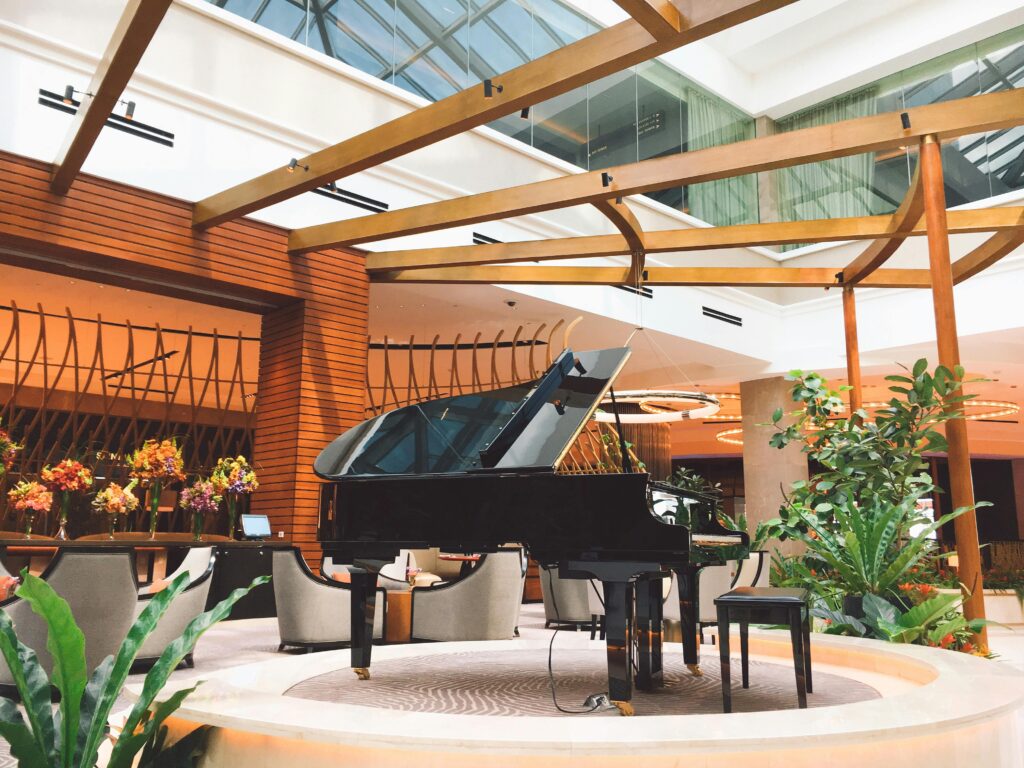
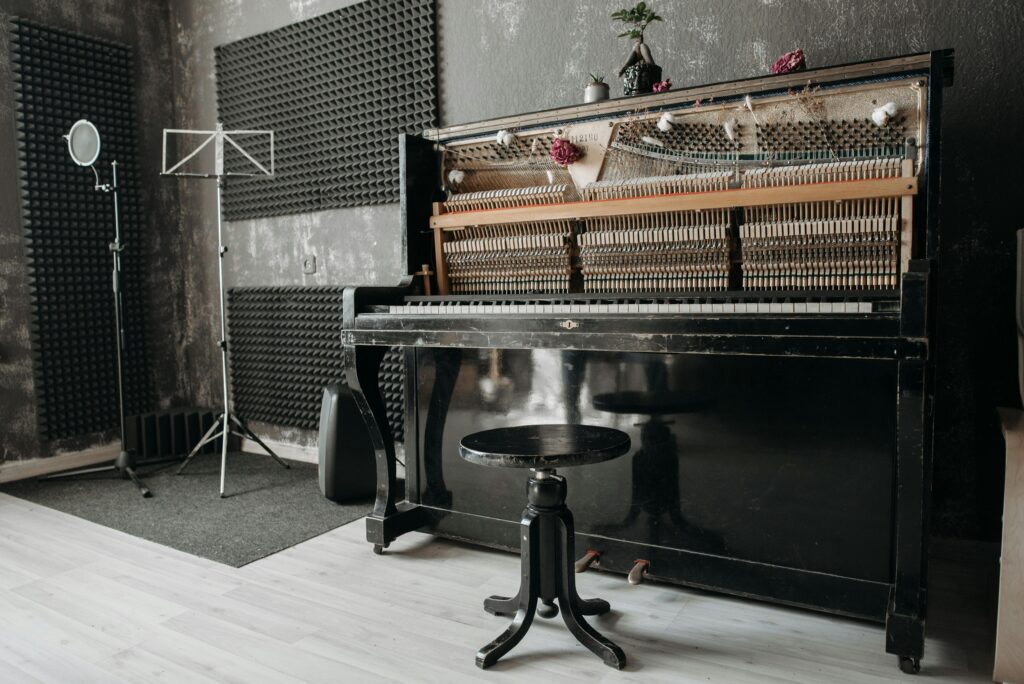
2. Upright Piano
An upright piano, also known as a vertical piano, is a more compact version of the grand. The strings and soundboard stand vertically, saving space.
Best For: Homes, schools, casual players
Pros:
1) Affordable
2) Space-saving
Cons: Less expressive than grands
💡 The Innovation of Digital Pianos
3. Digital Piano
Digital pianos replicate the feel and sound of an acoustic piano using advanced technology. Some come with weighted keys to mimic the feel of a traditional piano.
Best For: Beginners, learners, home practice
Pros:
1) Headphone jack
2) volume control
3) portability
Cons: Sound quality varies with price
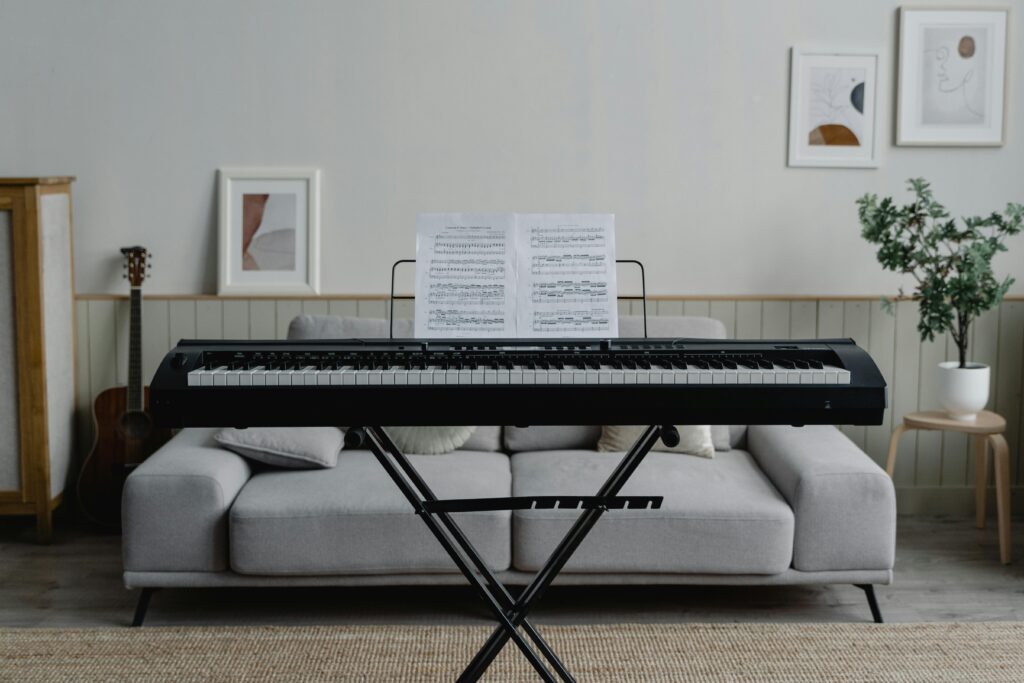
🎛️ Exploring the World of Keyboards
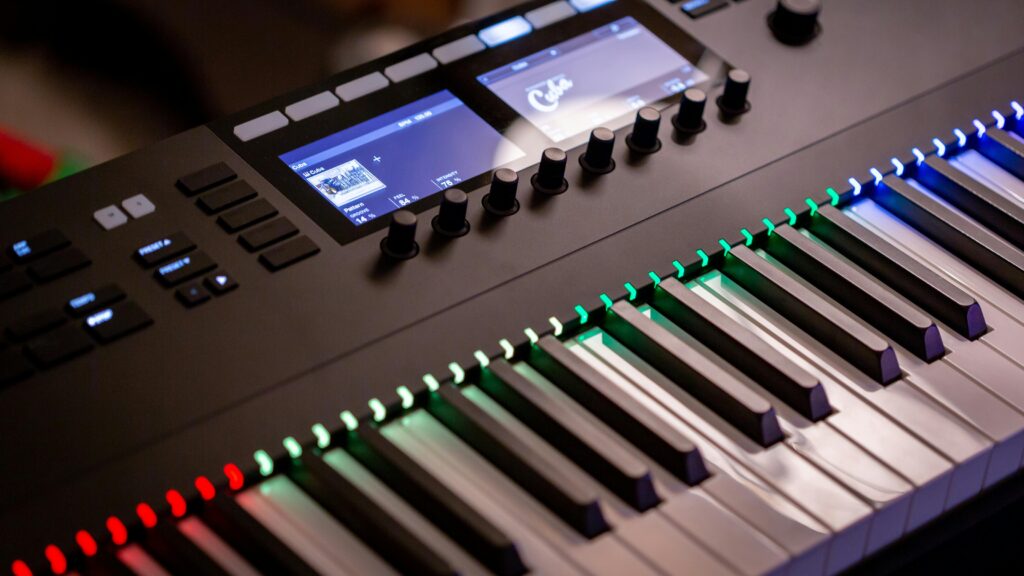
Electronic Keyboard (Portable Keyboard)
These are versatile, lightweight instruments often loaded with sounds, rhythms, and learning tools. Great for beginners and hobbyists.
Best For: New learners, casual musicians
Pros:
1) Affordable,
2) Portable,
3) Fun features
Cons: May have fewer keys and non-weighted action
Synthesizer
A synthesizer is designed for creating and shaping sounds. Unlike traditional pianos, synths can generate futuristic tones, pads, basslines, and more.
Best For: Producers, electronic musicians
Pros: Limitless sound possibilities
Cons: Learning curve can be steep
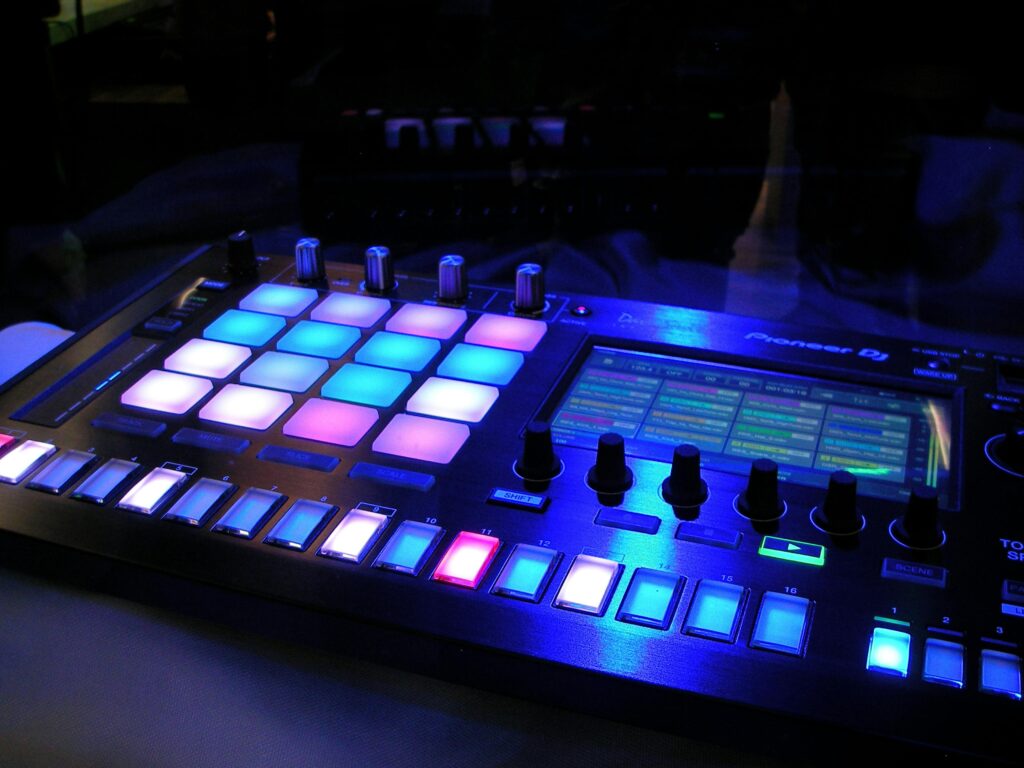
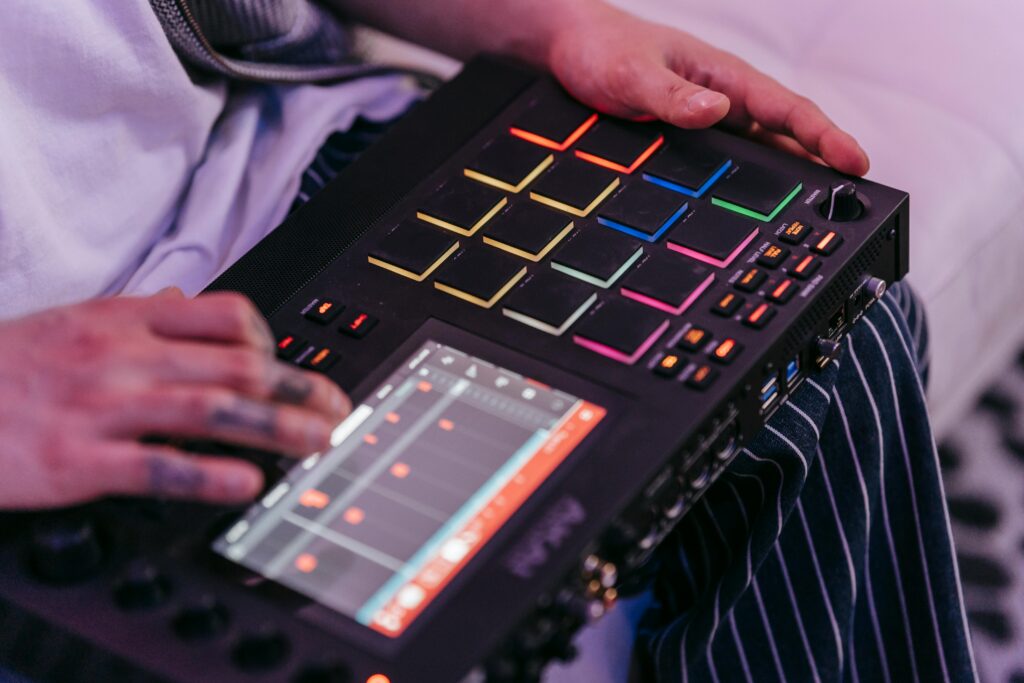
MIDI Controller Keyboard
This is not a standalone instrument but a controller that connects to software. It sends MIDI data to a digital audio workstation (DAW), making it ideal for music production.
Best For: Composers, beatmakers, studio musicians
Pros: Highly customizable
Cons: Requires external software to produce sound
Stage Piano
A stage piano is a professional-grade digital piano designed specifically for live performance. Unlike home digital pianos, stage pianos prioritize sound quality, reliability, and portability, often sacrificing built-in speakers in favor of being connected to external sound systems. Built for live performances, stage pianos offer authentic piano sounds in a road-ready form.
Best For: Gigging musicians, live shows
Pros: Excellent sound quality, reliable
Cons: Pricier than beginner keyboards
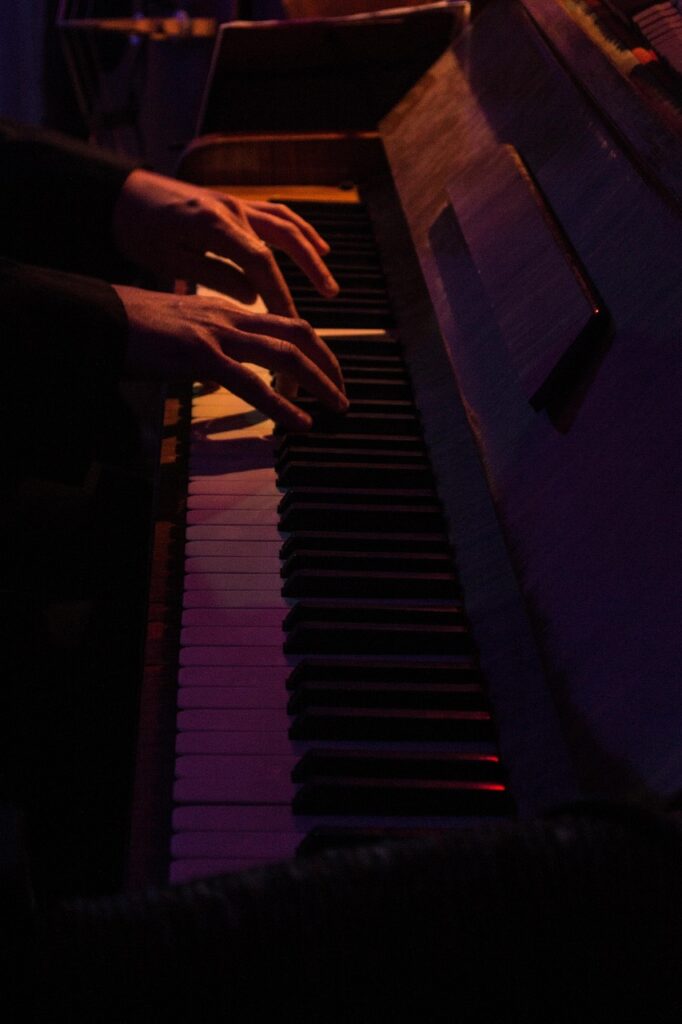

Arranger Keyboard
Arranger keyboards come with built-in accompaniment features. They allow solo performers to sound like a full band.
Best For: Songwriters, one-man bands
Pros: Great for composing and performing alone
Cons: May not suit classical-style playing
| Type | Key Features | Best For | Pros | Cons |
|---|---|---|---|---|
| Grand Piano | Horizontal frame, long strings, rich sound | Concert pianists, professionals | Best sound and touch, dynamic range | Expensive, very large and heavy |
| Upright Piano | Vertical frame, compact size | Homes, schools, learners | Space-saving, decent tone | Less expressive, harder to tune than digital |
| Digital Piano | Electronic, simulates acoustic piano | Beginners, home users | Portable, volume control, headphone use | May lack acoustic realism depending on model |
| Electronic Keyboard | Built-in sounds, rhythms, lightweight | Beginners, casual musicians | Affordable, fun features, portable | Fewer keys, non-weighted keys, basic sound |
| Synthesizer | Sound creation and modulation tools | Producers, electronic musicians | Versatile sound design, modern music capabilities | Complex interface, not beginner-friendly |
| MIDI Controller Keyboard | Sends MIDI data, no built-in sound | Studio producers, composers | Lightweight, customizable with software | Needs DAW/software, no standalone use |
| Stage Piano | High-quality samples, built for performance | Gigging musicians, performers | Durable, authentic feel and sound | Costlier than basic digital keyboards |
| Arranger Keyboard | Auto-accompaniment, rhythm styles | Songwriters, solo performers | One-man band features, easy composition | Less suited for traditional piano pieces |
🧠 Which One Should You Choose?
Your choice depends on your goals:
1) Want realism and depth? Go for a grand or digital piano.
2) On a budget or just starting out? Try an electronic keyboard.
3) Love creating new sounds? A synthesizer or MIDI controller is your best friend.
4) Performing live? Check out stage or arranger keyboards.
Have questions or want help choosing the right Piano or keyboard?
Feel free to leave a comment or reach out—we’re here to help guide your musical path!
